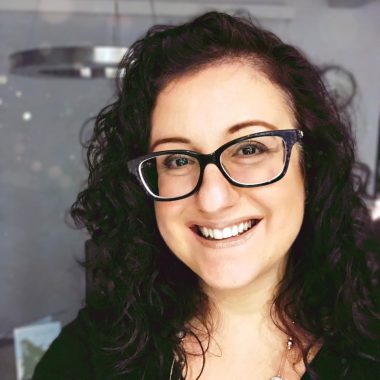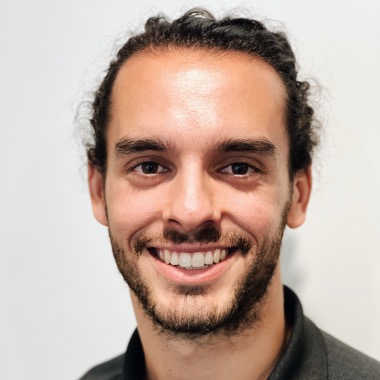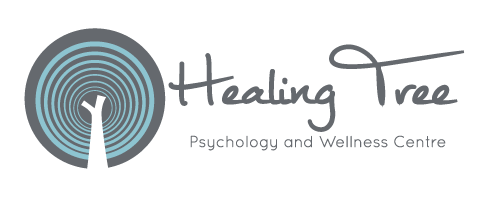ANXIETY
Do you struggle with any of the following?
- You feel constantly stressed out. It seems like there’s always a million things to do, and not enough time to do them. You feel like you’re constantly running and never stop to smell the proverbial roses, yet when you do take time to “relax,” you can’t seem to enjoy the moment, feeling guilty for not being productive or worrying about what you still need to do. You feel like you’re carrying way too big a load but don’t feel like you can let anything go. The sense of overwhelm sometimes gets so big you get paralyzed and end up doing nothing at all.
- You’re often worrying about something. Maybe you worry about one thing in particular, like your job, money, your relationship, your kids, what the future holds, or maybe you worry about ALL of these things. Worry can also look like indecision, feeling stuck and never moving forward because of all the “what ifs.” You may be someone who is overly cautious about life, fearing what could go wrong if you take a risk. You may be hypervigilant in certain situations to make sure nothing goes wrong. Uncertainty is not your friend; you like to know how a situation will play out or else you can’t relax. You may even feel the need to be in control much of the time to avoid any uncertainty or make sure things go as planned. You may have also been told you overreact to things, maybe even told you’re “too sensitive.”
- You struggle with a lot of the physical signs of anxiety. Muscle tension and pain, headaches, a racing heart, feeling out of breath, tightness in your chest, upset stomach, restlessness, and trouble falling or staying asleep are just some of the physical manifestations of anxiety. You may only experience these symptoms in the face of a stressor, or they may be present most of the time, sometimes even progressing to full-blown panic attacks, where you may experience intense physical sensations that make you feel like you might be dying or “going crazy.” These are all signs that your nervous system is overstressed and out of balance, even if you don’t have any of the cognitive symptoms of anxiety like fearful or negative thoughts.
- You have one or more specific phobias. Certain places, people, things or situations cause intense fear for you. Some examples include driving, taking public transportation, crowds, getting trapped in a place with no exits, flying in an airplane, and dogs or other animals. These phobias are intense enough to cause interference in your daily life; for example, you need to travel for work but can’t due to a phobia of flying.
- You have intense fears, intrusive thoughts or compulsions that interfere with daily life. Obsessions can take the form of intense fears or worries that don’t seem to stop, as well as unwanted “intrusive thoughts” about feared actions or outcomes that cause you anxiety. These thoughts lead to “compulsions,” mental or behavioural acts, that you must complete in order to drive the obsessions away or prevent the feared outcome from happening. Obsessive-Compulsive Disorder can manifest in many ways, from being afraid of getting sick and compulsive cleaning/handwashing, or having unwanted thoughts about bad things happening to you or your loved ones and feeling compelled to complete a ritual to make sure those things don’t happen.
- You often worry about your health and are hypervigilant about your physical symptoms. Health anxiety, which many people refer to (disparagingly) as “hypochondriasis,” is the excessive worry that something is wrong with your body, resulting in many visits to the doctor, spending a lot of time and money on pursuing the latest health fads, or becoming very anxious when something “feels off.” You may truly believe something is wrong with you, or have trouble distinguishing between what’s truly something to be concerned about and what’s “in your head.” Some people with anxiety may also be prone to expressing their emotions through their body, a phenomenon known as “somatization,” which can result in very real physical symptoms like chronic infections, rashes or other skin conditions, headaches, muscle or nerve pain, nausea, as well as many others.
- You become anxious about social situations. You dislike large groups of people, dread going to parties, get anxious about eating in public, get nervous around people you think are “more important” than you (authority figures, people you see as having higher social status), worry a lot about being rejected, and care too much about what other people think of you. Social Anxiety is less about other people themselves, and more about how you imagine others might perceive you. You may also feel you are lacking certain social skills to meet or get along well with others.
- You have experienced one or more traumas in your life and are struggling with the consequences. While Post-Traumatic Stress Disorder (PTSD) can sometimes manifest in more “active” symptoms, like experiencing flashbacks or nightmares, constant anxiety and hypervigilance about potential threats, or feeling unsafe all the time, PTSD often has more “invisible” symptoms that can cause you to limit your life in many ways. These include avoiding certain situations, places or people that remind you of the trauma, a constant sense of numbness, dissociation (being mentally zoned out or even losing chunks of time) and disabling depression. PTSD can sometimes be the result of obvious traumatic events, such as experiencing an accident, an assault, or witnessing a violent act. However, many traumas are less severe in nature and occur on a more chronic basis, such as living with abuse, or growing up in difficult circumstances such as poverty or a chaotic home life. Some traumas are not even the result of “bad things happening that shouldn’t,” but “good things that should have happened that didn’t,” such as having a family that wasn’t emotionally supportive or didn’t provide you with the resources you needed to become a happy, healthy, functioning adult. These less obvious forms of trauma are actually very common and in many ways, even more devastating because they can affect so many aspects of your life.
Will It Work For You?
The clients who get the most out of working with us typically share many of the following characteristics. If these fit you, you are likely someone who can overcome your anxiety.
- You are ready to deal with the life situations and beliefs you may be carrying that contribute to your anxiety, and have acknowledged that what you’ve been doing (or more likely, not been doing) is contributing to the problem.
- You are willing to face the difficult feelings, physical sensations and symptoms, memories or situations that fuel the anxiety.
- You are finally ready to stop the endless spiral of anxiety, and live a life that is calm, centred and grounded.
- You are ready to let go of the negative feelings and develop a good emotional balance within yourself.
- You are not looking for a quick fix; you know that real healing is a process that takes time, energy and commitment to a long-term solution.
- You are open to asking for and receiving help to move past this problem; you’ve tried so many different things, and you realize that new results require new approaches.
- You are ready for a therapy process that is honest, transparent and challenging. You’re not just looking for someone to listen and support you; you also want to be guided through the process and ensure that you achieve your goals.
- You are willing to challenge yourself or be challenged to learn new ways of coping and let go of old habits.
- You are ready to heal! By breaking free from the patterns that keep you anxious and learning to cope with your emotions in other ways, you will not only become calmer and happier, but will grow into a more evolved version of yourself!
Results you can expect
When you work with us, you can expect to get at the root of your anxiety, stop the endless cycle of worry, panic, avoidance and stress, and get you back in control of your emotions. You will finally learn why you’re stuck in your patterns of anxiety, stop giving in to the “monkey chatter” in your mind, and develop a healthier relationship with your body and your emotions.
We are committed to helping you achieve these results:
- Figure out what’s behind your patterns of anxiety. By exploring the situations that trigger your stress and anxiety, and exploring the beliefs systems that may be unconsciously creating a lot of unnecessary anxiety in your life, we can begin the process of breaking free from these patterns. No more stressing, no more worrying, and no more sabotaging the joy and peace that you deserve in your life.
- Stop obsessing over the thoughts that plague you. No more hours wasted ruminating over situations that are likely outside your control, that keep you paralyzed and stuck. Learn how to channel that obsessive thinking into a grounded and inspired energy that moves you to cope more effectively with the situations that are creating some of your anxiety.
- Change the thought patterns keeping the anxiety stuck in place. Shed the old beliefs systems that tell you lies, shading your perspective on life in often negative ways. While these conclusions may have been drawn at a time in which they made sense (e.g., “In order to get my mother’s love I need to be perfect”), they no longer serve you and in fact create much unnecessary pain and suffering. Learn how to let these go and create new, more empowering beliefs that help you live your best life (e.g., “I am good enough as I am”).
- Learn strategies to tame the anxiety monster. Good mental health is a practice, not a happy accident. Those unusually calm people you envy? They weren’t necessarily born that way. While a more sensitive nervous system contributes to a more anxious temperament, which is partly genetic, most people don’t realize that your sense of well-being is something that can be intentionally cultivated by your daily habits. Your therapist will teach you strategies that will help you get and stay calm even in the face of life’s various stressors. Techniques such as deep breathing, meditation, mindfulness, visualization, and good physical self-care promote a sense of calm that helps you navigate life in a more empowered way.
- Work through the traumas that may be at the root of your anxiety. Few people believe they have experienced trauma, but in reality, most of us have experienced some degree of wounding experiences that shape us. Some people may have experienced what we call “big T Traumas,” which are the sort of experiences that we ordinarily think of as traumatic (e.g., experiencing abuse, witnessing violence, experiencing an important loss as a child, among many others), but most of us have experienced the “small t traumas” of everyday life (e.g., growing up with a critical parent, being teased at school, experiencing emotional neglect, to name a few) that are unconsciously driving much of our behaviour. Learning to identify, work through and release these traumas, big and small, will free you to become the person you were meant to be. Going beyond merely “managing” and “surviving,” we believe in a Post-Traumatic Growth model that leads to thriving in your life.
- Stop avoiding and develop the courage to face the things that scare you. Avoidance of people, situations, thoughts, feelings and memories is very often at the root of anxiety. While avoidance makes sense in the short-term, it doesn’t actually work and creates bigger problems in the long-term. For example, a fear of conflict may lead you to avoid confronting your partner about a problem in the relationship, but not only does the problem never get solved, it can be compounded over time and cause the relationship to break down. Avoidance is a natural human reaction – after all, our ancient human ancestors would have done well to avoid places that dangerous animals were known to inhabit – but in our modern world of omnipresent stressors, avoidance is not a very effective strategy. You can learn how to slowly tolerate your anxiety by facing it in small steps, building a sense of security and courage in yourself as you do.
We can help you!
If you’re looking for help that works, for the long-term, then you’re in the right place! We go beyond just “managing symptoms” and offer strategies to heal from the root and develop the skills for lasting change.

Psychologist and Co-Director

ELENA GRINEVITCH (she/her)
Psychologist and Co-Director

EMMA COHEN (she/her)
Psychotherapist

SARA HASSAN (she/her)
Counselling Intern

CORY DANKNER (he/him)
Counselling Intern

ALYSSA JAMES (she/her)
Qualifying Psychotherapist / Social Worker

SOPHIA KNOCHE (she/her)
Intern Psychologist
*On maternity leave.

PAYTON BERNETT (they/them)
Intern Psychologist

MELISSA CLARKE (she/her)
Counselling Intern
